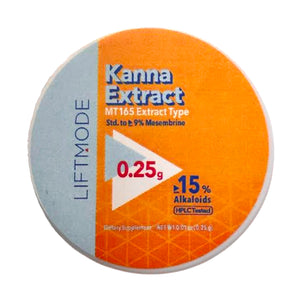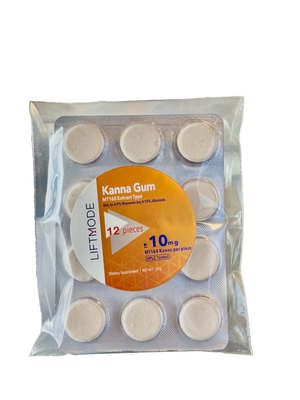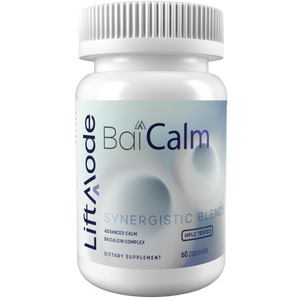Pro 1: Juices are Packed with Micronutrients
Micronutrients are essential nutrients for our bodies. They are especially involved in enzyme function, development, immune function, and overall well-being. Micronutrients include certain chemical elements and vitamins. Vitamin A, iodine, folate, and zinc, are considered to be among the most important micronutrients – and the most prevalent in deficiencies. [1] In fact, it is estimated that at least half of the children around the world aged 6 months to 5 years suffer from a micronutrient deficiency, and over 2 billion people around the world are affected by micronutrient deficiencies in some way. [2] According to the latest research, iron deficiency is the most common form of micronutrient deficiency in the world. Iron deficiency leads to anemia, decreased focus, and reduced immune and endocrine functions. Iodine and zinc deficiencies are also common, leading to goiter, reduced cognitive function, and increased diarrhea and respiratory diseases in children. [3] In the US, around 10% of people suffer from vitamin B6 deficiency, and around 10% of women have an iron deficiency (according to the CDC). [4] You can’t get too many micronutrients, and they’re so good for you! That’s why doctors and scientists recommended boosting up on them as much as possible.Pro 2: You Get More Nutrients by Juicing Than by Eating Raw Vegetables/Fruits
While we all like to think that we ‘eat healthy’ or at least try to eat healthily, the simple fact is that most of us do not get enough fruit and vegetables in our diets. The latest recommendation by the Imperial College of London is to eat 10 servings of fruit or vegetables a day. [5] In fact, it is now recommended to consume at least 800grams of fruits and vegetables every single day! Roughly: [caption id=""attachment_2185"" align=""alignright"" width=""300""]- 2 Kiwi fruit
- 1 apple
- 1 pear
- ½ a grapefruit
- 8 florets of cauliflower
- 1 glass of orange juice
- 3 tablespoons of peas
- 2 broccoli spears
- 1 whole tomato
- 1 banana [6]
- A 24% lower risk of heart disease
- A 33% reduced risk of stroke
- A 28% lower chance of developing cardiovascular disease
- A 13% reduction in total cancer
- A 31% lower chance of dying from any cause [7]
Pro 3: On a Juice Cleanse You’ll Avoid Bad Fat
Pro number 3 – what a great point! Fruits and vegetables are completely void of fat. Well, almost. Some fruits like avocados are actually pretty high in omega-3 oils, which are technically fats. We can quickly gain a very basic understand of the nature of fats and we’ll understand that any fat from fruits and vegetables is good fat!‘Bad fats’
- Trans-fats are man-made and have been chemically altered through a process called hydrogenation. These are found in processed foods and are linked to numerous diseases. [8]
- Saturated fats are solid at room temperature and include butter, cheese, and animal fat. Again, saturated fats have been linked to diseases like obesity, diabetes, heart disease, and cancer. [9]
‘Good fats’
- Monounsaturated fats are found in nuts, olive oil, canola oil, and avocados. Studies have shown that these fats have the potential to lower your LDL cholesterol. [10]
- Polyunsaturated fats include Omega-3s and Omega-6s. Omega-3s are especially important for health and are found in flax seeds, avocados, and olive oil. Omega-3 fats improve your wellbeing and help to prevent disease. [11]
Pro 4: Fasting has Numerous Health Benefits
""Everyone has a doctor in him; we just have to help him in his work. The natural healing force within each one of us is the greatest force in getting well. ...to eat when you are sick, is to feed your sickness."" – Hippocrates, the Father of Modern Medicine. [13] Fasting has been used as a healing technique for thousands of years. In fact, if you consider the animal kingdom, no animals eat when they are sick. So, it might even be safe to say that the practice of fasting for health has been going along for millions of years! Therapeutic fasting has been used for centuries. Despite the age-old knowledge of the power of fasting in healing, we are not given much information about this from our current medical system. That being said, it’s hard to find a place for fasting in a profit-based pharmaceutical system. Simply put, you can’t make much money from people who aren’t eating anything. However, modern research shows that fasting has a wide range of benefits. Scientists have found, for example, that therapeutic fasting helps with: [caption id=""attachment_2188"" align=""alignright"" width=""300""]- Rheumatoid arthritis
- Chronic pain diseases
- High blood pressure
- Metabolic syndrome
- Chronic inflammation
- Degenerative diseases
- Improves chemotherapy
- Decreasing aging effects
- Antioxidant effects [14]
Pro 5: Juicing is a Great Way to Lose Weight and Gain Health
Let’s face it, fasting for two days isn’t going to get you to lose any weight. Push it to ten days and you might be looking at some weight loss. Get to 40 days and you’re on a roll! The documentary film Fat, Sick, and Nearly Dead follows Australian man Joe Cross as he travels around America on a 60-day juice cleanse. Following the fast and adopting a vegan diet, Joe manages to lose 100 pounds and quit the medication he was taking for an obesity-related autoimmune disease. [16] The main way that juicing can help you lose weight is actually through the after-effects of the cleanse. Doing a 5-day ‘detox’ with a juice cleanse is great. But if you go straight back to the negative dietary habits that you had before, it’s a little pointless. A juice cleanse can be thought of as taking a plunge into the deep end. You’re not slowly changing your diet - you’re jumping right in by quitting all food and getting an extremely high dosage of micronutrients to kick-start your immune system. However, this is just the beginning. Once you’ve completed the cleanse it may be easier to transition to a healthy diet because well, if you can stop eating altogether for a few days, you’ve already proven to yourself that you’ve got what it takes to make fundamental changes to your diet. A lot of problems stem from our attachment to the foods that we eat. You often hear people saying things like, “I’m a steak guy”, or “I’m really into my [unhealthy food name]”. By forming personal attachments to certain food groups, we find it far more difficult to wean ourselves off them, even when we know that our health is at risk. [17] [caption id=""attachment_2189"" align=""alignright"" width=""847""]Myth 1: Fresh Juices Aren’t Healthy - They’re High in Sugar
Yes, juices are high in sugar. Fruits have a high sugar content – hence their sweet flavor. Juicing fruits means that you get all the nutrients in liquid form, including the sugar. But before we condemn juice cleansing as being an overdose of sugar, it’s important to understand that – like fats – there are different type of sugars. The sugar that is found in fruit is called unrefined sugar. Sugars that are found in most processed foods and are used in cooking are called refined or extracted sugars. These have gone through processing techniques and are more nutrient-rich and less healthy than unrefined sugars. [18] [caption id=""attachment_2190"" align=""alignright"" width=""247""]Myth 2: Juicing Removes the Fiber
Dietary fiber is an important part of your food. Fiber is also known as ‘roughage’ and is not absorbed in your intestines. Instead, fiber passes through your gut and helps to prevent and relieve constipation. There are two main types of fiber: [caption id=""attachment_2191"" align=""alignright"" width=""233""]Myth 3: Juicing has No Scientifically Verified Benefits
Juicing certainly does have scientifically verified benefits. However, it is recommended to talk to your doctor if you have any underlying health conditions before starting a juice cleanse. This is especially true for older women with thyroid issues. A 2003 study found that 8 days of juice fasting resulted in significant decreases in free cholesterol, triglycerides, very low-density lipoproteins (VLDLs), insulin, and C-Peptide. The study involved 5 healthy men who continued their exercise programs as usual over the 8-day period. [25] A 2010 study found that adding 1-2 cups of vegetable juice to your diet is a healthy and effective way to increase your phytonutrient and micronutrient intake. 162 people took part in the study, and almost all of them had below-par micronutrient intake before the study began. Interestingly, the results showed that people who had normal blood pressure before the study began had no significant changes. On the other hand, people with high blood pressure showed a significant drop in blood pressure over the 12-week study. [26] There is definitely a need for more research and more studies to examine the benefits of doing juice fasts. However, the benefits of fasting have been verified, as have the benefits of adding concentrated fruit and vegetable juice to your diet. So now there is just a need for more scientists to do more research bridging the two! [caption id=""attachment_2194"" align=""alignright"" width=""848""]Adding Supplements to Your Juices
One great way to boost the phytochemical content of a juice cleanse is to add water-soluble supplements to your juices. Here are six great supplements to add to your fruit/vegetable juices:- Green Tea Extract: Super high in polyphenols and catechins like EGCG, Green Tea Extract is a potent antioxidant, anti-inflammatory, and health-promoting supplement that can be added to a juice. [27]
- Quercetin: Quercetin is a powerful polyphenol with potent anti-inflammatory effects. Studies have also shown that Quercetin has the potential to boost cardiovascular health and prevent to lower LDL cholesterol. [28]
- Baicalin: An extract from traditional Chinese medicine (TCM) herbs, baicalin is a relaxing compound with anti-stress effects. It is also used in research for numerous potential benefits including anti-inflammatory, antibiotic, and antiviral effects. [29]
- Taurine: Taurine is an essential nutrient and a highly functional amino acid. It has a major role in the proper functioning of your central nervous system (CNS) and helps to improve focus, reduce anxiety, and increase libido. [30]
- Choline Bitartrate: Choline is another essential nutrient that is vital for the wellbeing of your mind and body. Choline has beneficial effects on memory and attention and is used by some people as a Nootropic. It has also been researched for its potential to reduce the risk of developing numerous diseases. [31]
- Hemp/Flax Seed Oil: Hemp oil or flax seed oil are great supplements to boost your Omega-3 intake. Although oils are not water soluble, you can add a teaspoon of the oil to your juice cleanse to increase your ‘good fat’ intake and help stimulate your immune system. [32]
Conclusion: How to Juice Cleanse
Juice cleansing is a combination of fasting and drinking nutrient-packed fruit and vegetable extracts. Most juice cleanses last around 3 days; some go on for much longer. Juice cleanses are a great way to kick-start healthy eating habits and boost your micronutrient levels. Micronutrients are essential for your health and wellbeing and include vitamins, minerals, and phytochemicals. Anybody can go on a juice cleanse and the benefits of fasting have been known for millennia. Drinking fruit or vegetable juice is healthy and has scientifically verified benefits, especially on blood pressure and cardiovascular health. Many phytonutrients also act as potent antioxidants. Importantly, recent studies have shown that a 2-4-day fast can literally reset your immune system. You can also add a number of dietary supplements to your juice cleanse. Take a look through our catalog of dietary supplements to find ones that suit your needs most. [caption id=""attachment_2184"" align=""alignright"" width=""847""]Medical Disclaimer
Not intended to treat, diagnose, or cure any disease or ailment. Please read and fully understand potential adverse effects before using this product. These statements have not been reviewed by the FDA and are not written by a medical professional. Please consult your doctor before using any supplements, especially if you have any medical conditions.
Tristan
B.Sc. in Molecular Biology and Biochemistry Researched & written by Tristan and verified by the Liftmode.com Research Team




